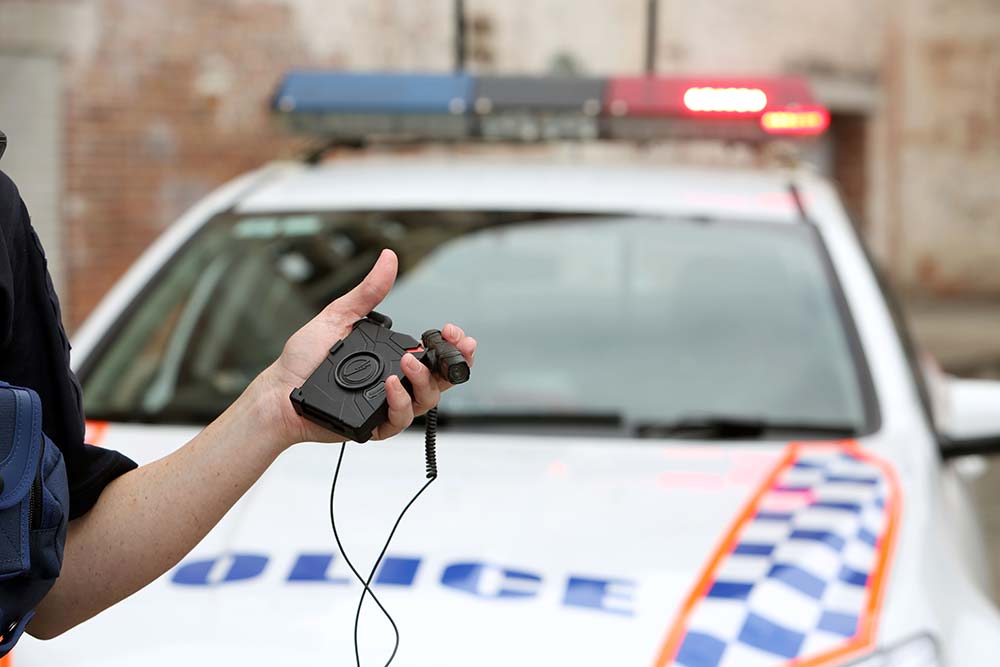
Image: Queensland Police Service (QPS)
The Queensland government has begun a state-wide roll out of Body Worn Cameras for its frontline police force.
The Queensland Police Service (QPS) has initiated the rollout following the success of the program on the Gold Coast.
More than $6 million has been allocated over three years to provide 2,200 new Body Worn Cameras to police officers to wear on the job, which would complement the existing 500 Service-issued cameras already in use on the Gold Coast and in the Road Policing Command.
The Body Worn Cameras have been supplied by a company called TASER.
According to the state government, the total distribution of 2,700 BWCs will represent the largest number of devices rolled out to any law enforcement agency in Australia, and the fourth largest rollout anywhere in the world.
It follows the City of Sydney and the City of Ryde’s use of BWCs to be used by council rangers to catch offenders in the act, and to document when people are abusive to rangers.
Queensland Minster for Police Bill Byrne said it’s another election commitment the Palaszczuk Government can tick off.
“Frontline officers at key locations across 26 south-east Queensland, central Queensland and north Queensland police stations will now be equipped with cameras which greatly assist in dealing with serious incidents such as alcohol-fuelled violence and domestic and family violence through enhanced evidence gathering,” Mr Byrne said.
He said specialist teams including tactical crime units, rapid action and patrol groups, the Railway Squad, Dog Squad and the Road Policing Command will now also benefit from BWCs.
Queensland Police Commissioner Ian Stewart said the roll out of BWCs across the state represented a new chapter in Queensland policing.
“An evaluation of the trial of Body Worn Camera use by Road Policing Command demonstrated a time saving of a minimum of 10 minutes per officer per shift,” Commissioner Stewart said.
“Through use of the evidence management system officers were able to add metadata to their recordings in the field, reducing the amount of time officers had to spend manually managing their data at the end of a shift.
He said this has been a long-running project for the QPS and a great deal of work has gone into ensuring “we can take advantage of this technology”.
“Not only did we need to choose the right cameras, but we also needed to ensure we had the capacity to store large amounts of data,” Commissioner Stewart said.
The government initiated a procurement process where it invited offers from suppliers after an “extensive evaluation process”.
“I am confident that we have identified the appropriate hardware and data storage system which will serve the QPS well into the future,” Commissioner Stewart said.
“It also means that the QPS will now have a digital evidence and storage system that will become the repository for data from BWCs – both Service-issued and privately owned – as well as from other sources such as digital voice recorders, digital cameras and closed-circuit television cameras.
“Extra training will be provided to officers to ensure they are able to make the best use of BWCs and the new storage system.”
The roll out is expected to be completed by November, 2016.





